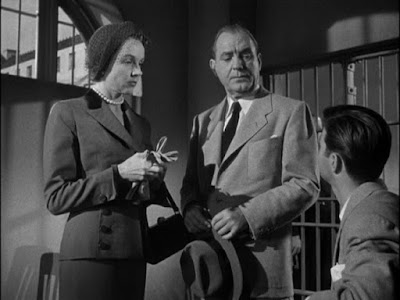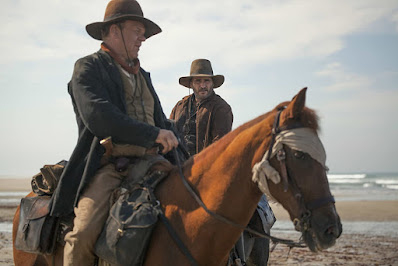By Ralph Santini - **½
Before we get into this movie, I’d
like to tell a decent explanation in my own words concerning a certain film
genre. Blaxploitation (as far as most of us film buffs know) is a racial and
cultural subgenre of that of the Exploitation film genre and it was enormously
popular in especially the 1970s. It’s actually a mix of words that combine both
the word “black” (concerning in this case African American people) and
“exploitation”. According to the information cited in Wikipedia from a 2018
article from the Los Angeles Times, investigated by writer Tre’vell Anderson this
mix of words was actually coined by Junius Griffin, an NAACP official for the
cultural organization’s Beverly Hills and Hollywood sector. That’s because
Griffin cited the term with a negative reaction proclaiming "proliferating
offenses" to African American people’s depictions in the films with some
stereotypical traits of their criminal involvement. Even in 1976 film critic
Vincent Canby described this subgenre as the following: “[S]upercharged,
bad-talking, highly romanticized melodramas about Harlem superstuds, the pimps,
the private eyes and the pushers who more or less singlehandedly make whitey's
corrupt world safe for black pimping, black private-eyeing and black pushing”. These
films are set in either the East or West coasts of the United States and focus
on the poor sides of the urban African American community. Blaxploitation
sometimes contain some racist insults towards Caucasians such as “honky” or to
an obscure extent “cracker”. When a Blaxploitation film is set in the south it
can deal with excessive slavery and cruel miscegenation. Historian Bill Lynne
describes Blaxploitation films being “often bold in their statements and
utilize violence, sex, drug trade, and other shocking qualities to provoke the
audience”. Another anecdote I just learned from Blaxploitation is that it’s
African American heroes overcome such terms as “The Man” or other insignias of
Whites oppressing the heroes’ people.
The film of such subgenre I’m about
to review is Aaron Loves Angela from 1975 and it stars a then 16-year-old Kevin
Hooks as Aaron, the African American lovesick hero who falls for Angela,
portrayed by also 16-year old Irene Cara, best known for performing both the
theme song of the 1980 film musical “Fame” and “What A Feeling” from 1983’s
Flashdance. The story is basically “West Side Story” only with African
Americans vs. Puerto Ricans with not much dance numbers and a soundtrack
composed by Puerto Rican singer songwriter Jose Feliciano. But that’s because
this film and WWS are not only both renditions to Shakespeare’s Romeo and
Juliet but both films are set in New York City, the big apple. As we all know, in the beginning of the film,
there is basketball game in high school concerning a team with African
Americans and their rival team of Puerto Ricans. The glitch occurs when Aaron
seems to have an enormous crush on Angela and the African Americans lose the
game. Aaron’s African American friends are upset but that doesn’t seem to
bother him so. Aaron and Angela’s interracial romance seem to compose at lot of
factors in their lives; in Aaron’s case his father (played effectively by Moses
Gunn) gets rather suspicious when several things do not appear in his apartment
and that’s because Aaron takes them to an abandoned building where he keeps
developing his love affair with Angela. In Angela’s case her mother constantly
worries about her absence of their apartment and she keeps lying that she still
is dating her former boyfriend Ricardo.
This film has got some good moments
but I can’t quite recommend it enough due to its rather cliched Romeo and
Juliet-related traits. Good moments of the film include Moses Gunn’s terrific performance
as Aaron’s domineering father, the lovely daytime views of New York City (where
the movie was entirely and authentically filmed), and Jose Feliciano’s
beautiful music including the lovely song “Angela”. The other moments that are
so-so are the cliched chemistry between Aaron and Angela (no offense to the
actors’ talent though) and many of the results concerning the danger they must
face.






